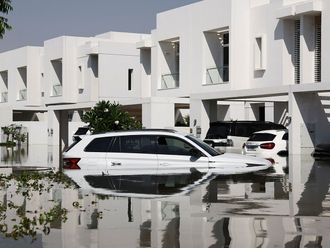The 2010 Index of Economic Freedom depicts an inaccurate picture of the level of economic freedom within the six-nation Gulf Cooperation Council (GCC). Basically, the report views Bahrain's economy as the only truly free economy within the GCC and it clinches spot No 13 worldwide.
The index uses the results of ten variables in assigning points to reviewed economies. The variables are business freedom, trade freedom, fiscal freedom, government size, monetary freedom, investment freedom, financial freedom, property rights, freedom from corruption, and labour freedom. In turn, each variable carries 10 points on the 100-point maximum scale.
The Heritage Foundation and the Wall Street Journal are noted for their conservative ideologies and embracement of private sector initiatives. Amongst others, the report sees government involvement in the economy as something negative. The private sector is rightly equipped to assume business matters by virtue of seeking profits and hence providing desired services. However, the global financial crisis has revealed the dangers of lack of government oversight. Non-governmental financial institutions are blamed for starting the problem via liberal lending practices to risky borrowers.
According to the report, Hong Kong remains the freest economy in the world, having achieved a 90 per cent freedom level. Likewise, Singapore succeeded in maintaining the second best rank on the back of an 86 per cent freedom level.
Bahrain managed to improve its ranking by three notches, and hence earned the title of freest economy within the Middle East and North Africa. This marks the second year in a row that Bahrain has improved its ranking by three positions.
The report gives Bahrain an almost complete result for fiscal variables due to the absence of taxes on personal and corporate income.
Yet this classification could end if the authorities start applying taxes to large foreign corporations operating in Bahrain.
Undoubtedly, the move would be regarded as a discriminatory practice in favour of local firms.
The trouble with the Index of Economic Freedom relates to its unfair ranking of the rest of GCC countries.
Among 179 ranked economies, the report ranks Qatar, Kuwait, Oman, the UAE and Saudi Arabia at 39, 42, 43, 46 and 59, respectively.
Contradicted
The claim that the UAE is the fifth freest economy within the GCC states is a hard sell. For instance, the report provides a low grade of 35 per cent to the investment freedom variable in the UAE.
The low figure is not supported by foreign direct investment (FDI) statistics.
According to the World Investment Report 2008, issued by the World Conference on Trade and Development (Unctad), inward FDI amounted to $13.7 billion (Dh50.28 billion) in the UAE in 2008, in turn the second highest within the GCC after Saudi Arabia. Also, the 2009-2010 Global Competitiveness Report issued by the World Economic Forum ranks the UAE as number 23 among 132 ranked economies.
In fact, the UAE advanced by 8 notches in a span of one year, the highest stride among the GCC countries.
The result puts the UAE directly behind Qatar, which in turn achieved the best result among the Arab countries.
The problem is the report provides no clear methodology on assigning grades for the ten variables used in developing the index.
Largely, the report relies on results of other studies or secondary sources designed for other purposes in arriving at its final ranking.
Another weakness in the report is that of being somehow politically motivated.
North Korea, Zimbabwe and Cuba are considered the least free countries in the world.
Other countries in the bottom line are Venezuela and Iran.
Nevertheless, GCC authorities should use the Index of Economic Freedom as a means of strengthening the role of private sector investors in local economies.
The writer is a Member of Parliament in Bahrain












